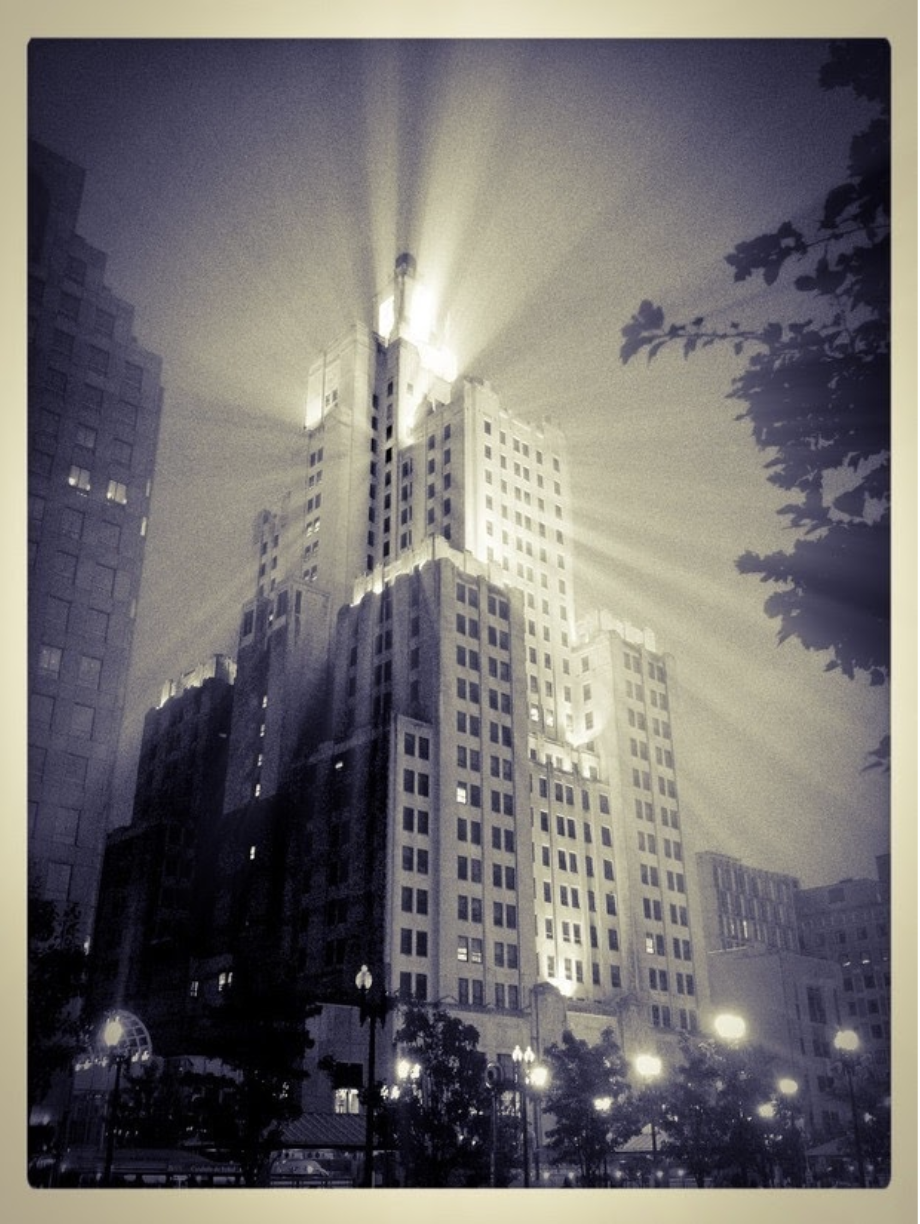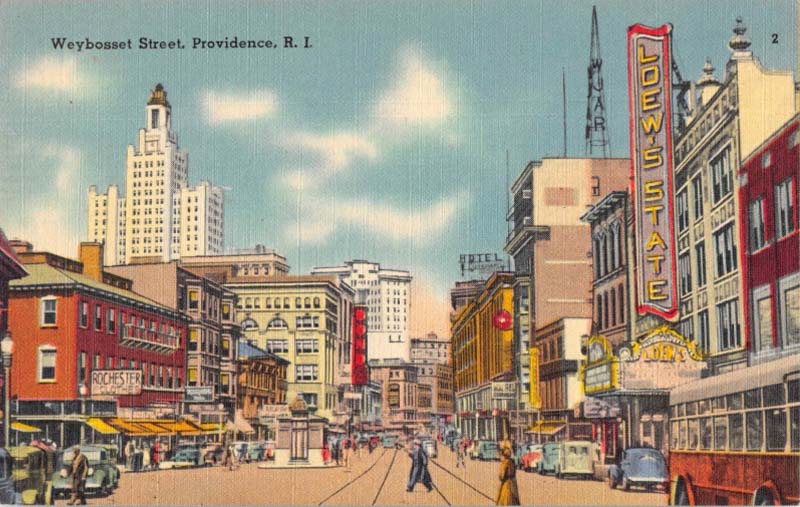MA 2020 : Project Brief
Master of Arts in Adaptive Reuse, Spring 2020
Saving Superman is an endeavor, both national and local, to preserve an extraordinary structure. In May 2019, the Industrial Trust Building, known in Providence as the Superman Building, was placed on the National Trust’s list of America’s 11 Most Endangered Historic Places. Built in 1928, this Art Deco skyscraper was a symbol of Providence in its heyday. Its tenant, the Industrial Trust, with its magnificent banking hall, was a testament to the wealth amassed through decades of industrial production. With the crash of the stock market the following year, the Industrial Trust Building would be the last thing to be built in Providence for some years. Superman survived the crash but succumbed decades later when its last tenant, Bank of America, vacated the building in 2013. It has remained empty since.
In this year of its nomination to America’s Most Endangered Historic Places, Rachel Robinson, Director of Historic Preservation at the Providence Preservation Society says that Saving Superman is “an exercise to re-envision and revitalize Rhode Island’s most significant historic landmark through creative design endeavors that respect the building’s integrity while pushing the boundaries of innovation.” RISD’s Department of Interior Architecture, with its focus on adaptive reuse, joined forces with PPS to explore the reuse of the Superman Building in the final semester of the MA in Adaptive Reuse Program. A one-year post professional degree for architects, the program culminates in the Adaptive Reuse Studio that is both a design studio and a full-scale demonstration of adaptive reuse practice in a real-life context.
The studio’s objective will be that of the Athens Charter of 1931 that recommends that the occupation of buildings, which ensures the continuity of their life, should be maintained but that they should be used for a purpose which respects their historic or artistic character.’ With the assembly capacity of Yankee Stadium, and the volume of 28 Olympic sized swimming pools or 1200 hotel rooms, a re-purposed Superman will require the participation of different sectors, from preservation to real estate development, from government to the local community, and from banking to planning.
Graduates of the Master
of Arts in Adaptive Reuse (MA) program are prepared to engage in the
practice and implementation of adaptive reuse in the built environment through:
- the demonstration of an appropriate aesthetic, theoretical and technological framework
- expand upon the architect's understanding of reuse as a product of practice and in the context of architectural history and theory
- develop strategies for acknowledging the importance of social and environmental responsibility through design projects
- view and evaluate adaptive reuse through a multifaceted lens
- recognize the origins of adaptive reuse as well as the contemporary context governing current practice
- use qualitative and quantitative methods to evaluate the economic and environmental merits of adaptive reuse
- become ambassadors of adaptive reuse as a specialty in the professional design setting


